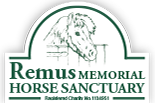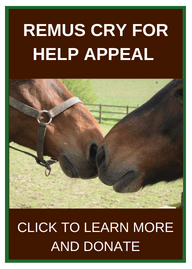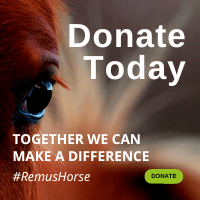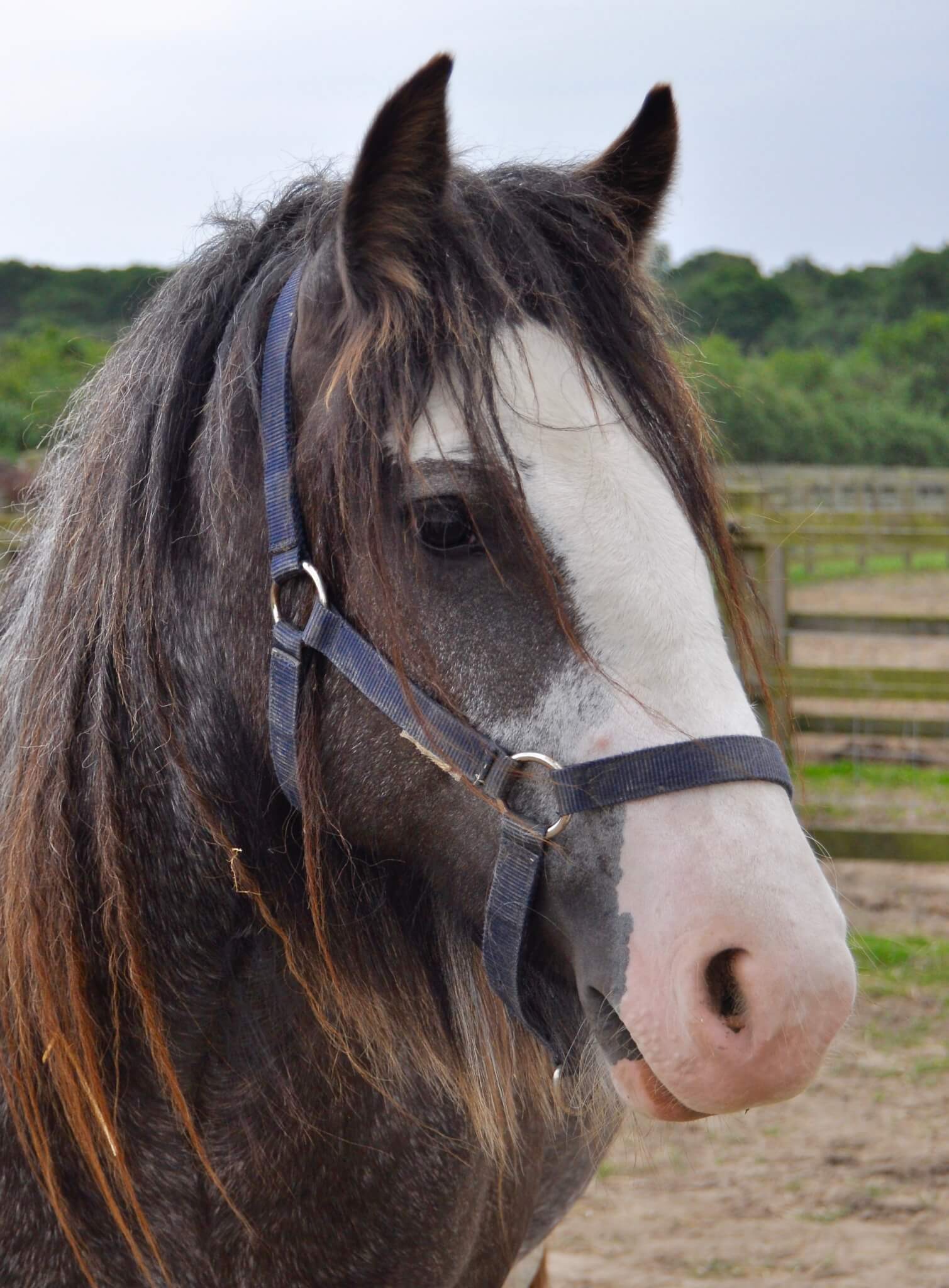

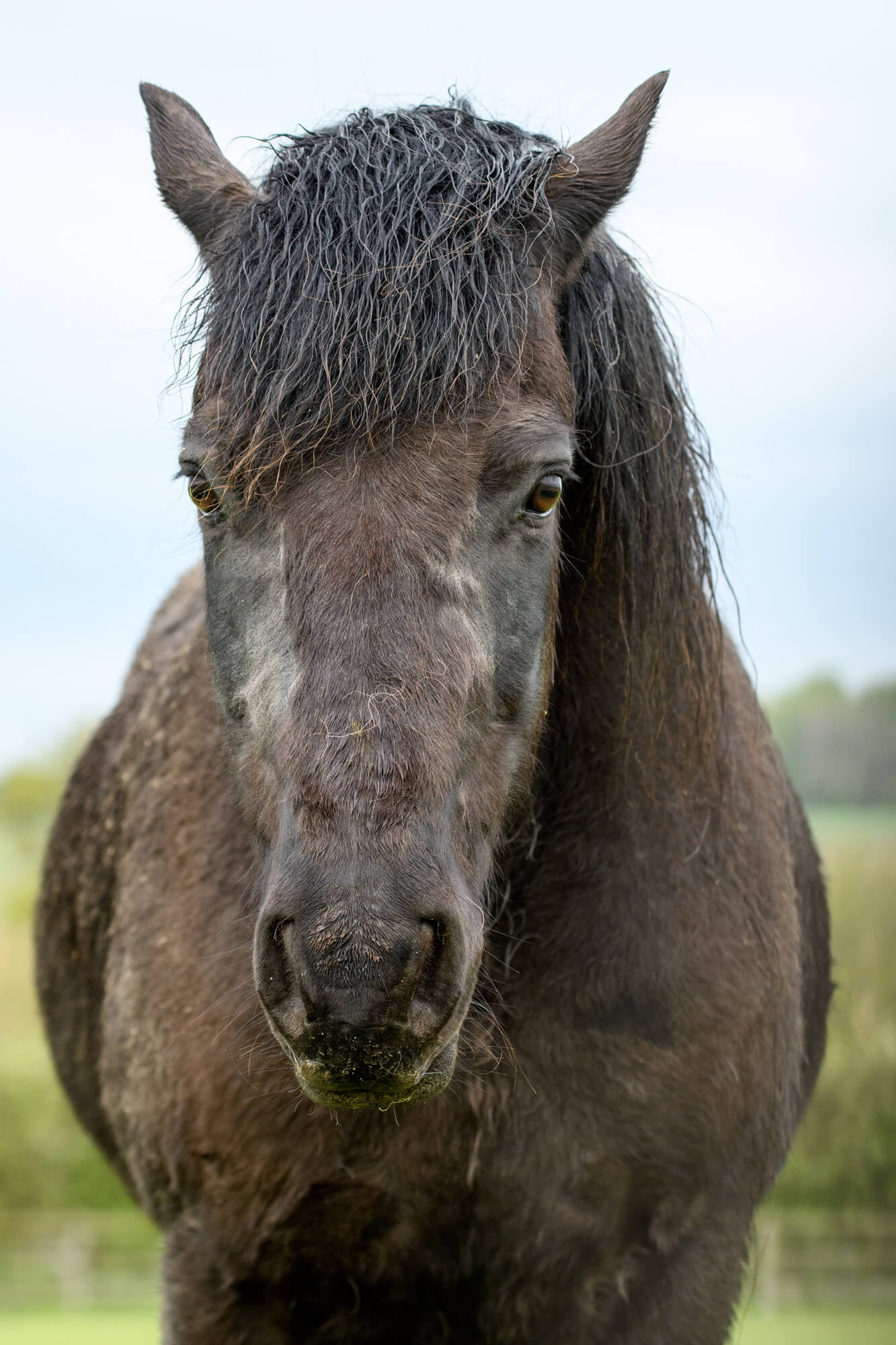
Improving equine welfare through changing habits
The 2020 National Equine Forum took place on 5 March with a focus on how changing our own habits as owners can improve equine welfare.
Here at Remus we provide lifetime help and care for horses, ponies and donkeys. We also advise owners of older horses in all aspects of care through our Elderly Horse Campaign and advise members of the public through our Horse Welfare Watch. So we’re very conscious of the need to encourage better awareness within our communities.
Veterinary, equestrian and behavioural change experts came together at the Forum to discuss how the welfare of our horses can be improved by changing our habits in relation to disease prevention and control.
One of the welfare issues they looked at was colic risk. The ‘REACT now to beat colic’ owner campaign was developed by The British Horse Society and the University of Nottingham and is helping to ensure colic cases are more appropriately and rapidly responded to in order to ensure more effective treatment.
Another issue discussed was worming. There has been lots of debate surrounding regular worming programmes and the message from the Forum was that the more we worm, the more resistance we will experience to the drugs we currently use. Instead, if owners turn to targeted worming – in other words, only worming if a faecal worm egg count shows it is needed – then this could decrease the use of the drugs by 80%, therefore delaying further resistance.
You can read more about the discussions from the National Equine Forum on the website: www.nationalequineforum.com/changing-our-habits-nef20/.
You can learn more about our Elderly Horse Care and Welfare Watch on our website.
Remus Horse Sanctuary Concerns for Animals
The outbreak of Coronavirus (Covid-19) is putting a major strain on local, national and global resources. At Remus Horse Sanctuary in Essex, the stark reality – so far – is that all fundraising events have been cancelled and many of the older volunteers have had to stand down. The charity is now reliant on a small group of yard staff maintaining their own health to continue to feed and care for the animals residing at the Sanctuary.
If you would like to donate and help support and care for our animals, you can do so online.
Sue Burton, Founder of Remus Horse Sanctuary, said: “We are all living through very difficult times at the moment due to the Covid-19 outbreak. Its impact is showing in all aspects of life and business and I want to offer my well wishes for everyone’s health and wellbeing.”
Whilst the position surrounding Coronavirus changes daily and continues to create fear and anxiety around the world, the horse welfare crisis in this country also remains unchecked. In fact, many more animals will likely be in need of help and rescue.
From a financial perspective this puts the charity in a very worrying position. Not least, because the Government advice of social isolation also means no fundraising, whether on the street or as a result of organised events, and yet Remus still have animals at the Sanctuary to feed and care for. The staff are hoping that its suppliers can still supply the quantities of feed, hay and straw required.
Many larger charities may be able to withstand this type of business interruption, but Remus simply don’t have the reserves to do so – financially or otherwise – especially given even the experts can’t accurately forecast how long this situation might continue.
Ms Burton commented, “It’s strange here, everything goes on as normal and the animals still have their same set routine and are oblivious to what’s going on around them. Thankfully they are all in good health.”
The horse welfare charity is calling on people everywhere to help by making a donation to the Sanctuary or by setting up a monthly standing order. Remus’ rescued animals need help and support now more than at any other time.
Any help that can be offered will be gratefully received by the charity.
Ms Burton said, “I know times are hard for everyone at the moment but if you can do something to help us during the coming months, we really would appreciate it. With your help and support we will get through this and come out the other side.”
Remus Horse Sanctuary offer many ways to aid donations, as listed on their website at www.remussanctuary.org/donate. You can also donate food and bedding via the online shop.
For further information about the charity, visit www.remussanctuary.org or contact Sue Burton on tel: 01277 356191.
Giving our horses the quality of life they deserve
Quality of life is so important to us here at Remus. We aim to give all of our residents as comfortable a life as possible, but can we really know what makes our horses happy?
A group of researchers from the UK, New Zealand and Australia are working to identify accurate ways to measure a horse’s emotional wellbeing, so that we can all keep better track of our horses’ welfare.
The researchers have reviewed two areas that could reflect their wellbeing; equine behaviours and physical measures, such as heart rate.
They found that behaviours were more reliable in assessing welfare than physical measures, although these should still be taken into account. Behaviours such as: feeding behaviour, interaction with other horses and with humans, and interest in the environment around them most clearly indicated their emotional state. For example, when they were happy, the horses had more friendly social interactions.
Basic welfare requirements include food, water and shelter, but this study reinforces the fact that horses’ needs are much more complex than this.
At Remus our residents have access to whatever their individual needs require. They have deep beds, heat lamps and pain relief, if needed, for arthritis or other issues to keep them stress free and relaxed. We also have music and give self-selection herbs, and of course regularly check for dentition issues, take worm counts, feed high-calorific, high-fibre mashes and weigh them weekly to ensure we are keeping on top of their weight.
You can read more about the study into quality of life here.
If you would like to sponsor one of our animals, you can do so here.
Warnings Over Equine Obesity
Our horses’ weights are often at the forefront of our minds this time of year – especially when we’re getting more rain than sunshine, and can see the grass getting its second wind!
While, here at Remus, much of our concern is keeping weight on some of the older horses – and indeed taking in horses who have not been given access to suitable food and forage – we’re very aware of the dangers of equine obesity, in terms of laminitis and injuries to tendons and ligaments due to the extra pressure.
There have been a number of stories in the equestrian media on obesity, with warnings from vets who have had to put horses down and who believe owners’ attitudes to excess weight need to change.
Thankfully it seems that awareness is growing. There’s a horse show up north that recently had a vet award horses of the healthiest weight in its in-hand showing classes. It was the brainchild of Tamzin Furtado, who has recently completed a PhD on equine obesity and says owners can find it quite hard to recognise appropriate body shape.
You can read the whole story here.
If you would like to come and meet our animals and learn more about the work we do at Remus Horse Sanctuary, our next Open Day with fun dog show will be taking place on Sunday 7 July. You can find more details on that here.
Ragwort: Be alert!
Spring has sprung and everywhere is looking very green – and yellow! The oilseed rape makes for some stunning scenery this time of year, but there is another, more sinister yellow plant about to make its annual appearance, ragwort.
Ragwort contains toxic compounds which, if eaten, can cause irreversible liver damage to horses. This can happen if it’s eaten fresh, but also dry in hay or haylage, so it’s important to check fields before making hay.
It’s usually found growing on roadside verges and wasteland but is spreading more and more to grazing land. Although it has a bitter taste, horses will eat it if there is nothing else available – and when it’s dry in hay, it’s very hard for horses to tell it’s toxic.
Ragwort starts flowering from May through to October, so do keep your eyes peeled for signs of the plant in your own fields and out and about. Horses left in fields of ragwort, due to cruelty or just ignorance, are at risk, so report any situations you’re concerned about.
There was a story in Horse & Hound about a pony who was rescued after being dumped. About four months into enjoying his new home, he had to be put down due to liver disease, presumably from exposure to ragwort in his earlier life. The owners are now trying to raise awareness of this ‘silent assassin’.
So take action today and let’s stop ragwort from taking any more innocent lives. If you’d like more information, visit the British Horse Society website.
Keep fit to reduce laminitis risk
An Australian study has shown that light exercise can help to reduce the risk of laminitis for horses and ponies. It’s a worry we all have at this time of year, but, while we can become obsessed with restricting grazing and getting out the weight tape every week, are we overlooking the need for simple exercise?
Busy holiday schedules and hotter summers can see our horses and ponies left out in the field and not ridden as often as we’d like. This study by the University of Melbourne has shown that even gentle exercise can make a real difference.
They studied two groups of horses; a diet-only group and an exercised-only group. High levels of insulin have been linked to laminitis and the diet-only group showed both lower insulin levels and weight loss at the end of the trial. The exercised-only group didn’t lose weight but had improved insulin sensitivity, which means they needed to produce less insulin to control blood sugar, therefore reducing their laminitis risk.
So keep an eye on your horse’s weight and get out for those evening hacks where you can. If your horse is retired or not ridden, like our residents here at Remus, then some walking in hand could be beneficial.
You can read more about the trial in this Horse & Hound article.
If you’re interested, you can also read our previous blog on the subject here: Laminitis Alert for Horse Owners and/or download this article from Horse Magazine which featured our research work.
Happy hacking!
Stay alert this Spring
It’s March, which means the first day of Spring is nearly upon us! It’s a lovely time for horse owners with lighter evenings and less mud, but it’s also a time to be vigilant. Yes, there’s the dreaded laminitis we all worry about, but the start of Spring is also when people tend to start getting their gardens ready for the warmer weather.
There was a news story in Horse & Hound recently about grass cuttings being dumped in a field with horses. Cut grass can do a lot of damage to a horse; it can make them colic, which could lead to all sorts of complications. Members of the public don’t necessarily realise how grass cuttings, vegetables or anything else they assume horses can eat, can actually harm them.
Our Horse Welfare Watch here at Remus helps us to encourage people not to turn a blind eye and report any horses that they are concerned about. Horses can, unfortunately, be exposed to what is not good for them, but we can work together to help raise awareness of the dangers and stay alert.
Read the whole news article here.
For information on our Horse Welfare Watch, visit our website here.
Autumn Update
It has been a tough 6 months at Remus. We have rescued eight horses from a multi-animal rescue including Daisy, top left, who is emaciated and had cancerous lumps through her body and is in her 30s.
Tiffany, middle left, stood out in a field with no shelter in all that extreme heat with a thick shaggy coat – since coming into Remus she has been clipped and feels so much better for it. Both mares are dear old girls and did not deserve to suffer in this way. There is a long way to go with their care but we hope to pull them through, although we aren’t sure with Daisy but if we can at least give her some months of happiness with a full belly then we will be happy we have achieved something and helped her. She is devoted to Tiffany and they are just loving their life at Remus where they are comfortable and have access to all the food they want.
Flint and Marmite 2 spent much of their lives in a cage but are now enjoying their freedom at Remus and absolutely adore each other. It is increasingly hard to comprehend how people can treat such innocent animals in such an awful way. We also rescued four stallions, one of which was in the most awful condition and all of them had spent the last two years cooped up in dark dirty stables with no access to the outside.
As the problem was so dire last winter, what will happen this winter? All the Traveller mares have foaled and all will be heavily in foal again by the winter so yet more thousands of horses born to die. This is a huge crisis and one that we have to be able to help with by dealing with the bigger underlying issues and also by getting in there and monitoring the horses and getting food and shelter to them. Sometimes it is just a case of getting lorry loads of hay into fields each week to keep these horses alive – this is not something we have needed to do on this scale before and it set the Sanctuary back many thousands of pounds last winter. Hopefully we can help keep them alive whilst we work in the background to get something done at Parliamentary level to help the overall problem.
We are still finding horses in poor conditions as they are uncared for, and the dry weather has meant little grass growth, so we have not yet experienced the usual summer time lull. We desperately want to keep up this vital help for these innocent and majestic creatures but can only do this with your support.
Here at Remus we have to regularly put animals to sleep to prevent them suffering, It doesn’t get easier – if anything it gets harder, but we know our job is to prevent suffering, not cause it. If there is a chance, we will take it in the hope of allowing the animal to enjoy life longer. It’s always a hard decision and one that tears us apart to make. And every once in a while, whilst we don’t have favourites (how could you? They are all uniquely lovely) one comes along that captures your heart. Sparkey, bottom left, captured ours – a dear little guy who fought so hard against all the odds with all his problems – always driven by his love for people and his love for food. We were all heartbroken to have to make the decision to let him go to prevent him any more suffering. He had the major operation on his skull to clear all the food that had built up through a hole in his gums and he came through that but sadly the surgery brought on his laminitis and as much as he and we tried he couldn’t fight it. Rest in peace Sparkey boy – run free!
Shopping List
These are items always needed at the Sanctuary, which some members like to buy to help us out with costs etc.
- Reams of White 80g Paper
- 2nd Class Stamps
- Felix As Good As It Looks
- Cat Biscuits
- Cabbages for the animals
Christmas Items
It’s that time of year again!! It won’t be long now until Christmas, so you can now browse our Christmas Shop which includes our new calendar and Christmas cards, and lots of other new items for this year.
May I take this opportunity to thank you all so much for your help and support over the years – without it, we simply could not do our work and help so many horses. THANK YOU SO MUCH FROM EVERYONE AT REMUS.
A happy horse is a horse that… ‘snorts’!
Every horse owner wants their equine to be happy. Let’s face it – if they’re happy, we’re happy. But it can be difficult to know whether or not our horses are truly happy – there’s nothing particularly obvious to help us know. They may seem relaxed, but are they feeling a bit down? Their ears may be forward, so they’re not grumpy or annoyed, but are they constantly on alert? It’s really not easy!
The good news is that research has recently emerged to suggest that the humble little ‘snort’ we hear from our horses is a sign of happiness – and the more they snort, the happier they are. The study was very in depth and you can read the results and explanations on the BBC website here.
Many of the horses and ponies that come into us here at Remus are survivors of terrible cruelty and we strive to give them the very best of care, allowing the younger ones to develop into happy adults, and the older ones to spend their twilight years in relaxed happiness.
Remus Horse Sanctuary is funded entirely by fundraising. To make a donation to support horse welfare, please visit our Donate Page.
Royal Visit Commemorates 35th Anniversary for Horse Charity
On Tuesday 26 June, Her Royal Highness The Countess of Wessex visited Remus Horse Sanctuary in Ingatestone, Essex, to help raise awareness of the ongoing horse welfare crisis in the UK and, to commemorate the charity’s 35th anniversary, by unveiling a bespoke plaque to mark the occasion.
Sue Burton, Founder of Remus Horse Sanctuary said, “it was an amazing day and we are so grateful for The Countess to take time out of her busy schedule to spend time with us.”
There are a wide variety of rescued animals at the Sanctuary, big and small, and Roxy the cat didn’t want to be left out [pictured]. During the visit, The Countess met many of the old and blind horses at the Sanctuary: including Holly and Grace who are both blind, Tosca who is now in his mid-40’s and Pippa who has undergone major eye surgery [pictured].
The Countess also met Blax [pictured] – a mare left in the most appalling condition, lame and emaciated in a field to fend for herself for more than three months. When The Countess last met Blax in July 2017, she hadn’t long been in the Sanctuary’s care and could barely move – now The Countess has seen her running and playing in the field.
Lord John Petre of Ingatestone, Mayor of Chelmsford Yvonne Spence, Mayor of Brentwood Sheila Murphy, and Deputy Mayor of Basildon Danny Lawrence were also in attendance, along with the Chief Executive of Chelmsford City Council Nick Eveleigh, charity staff, volunteers, members and supporters.
The Countess, who joined the charity as a Patron in 2013, and is committed to supporting horse welfare said in her speech: “Essex is lucky to have such a resource in the county” and encouraged people to get behind the Sanctuary and support its work.
For further information about the charity, visit www.remussanctuary.org.
